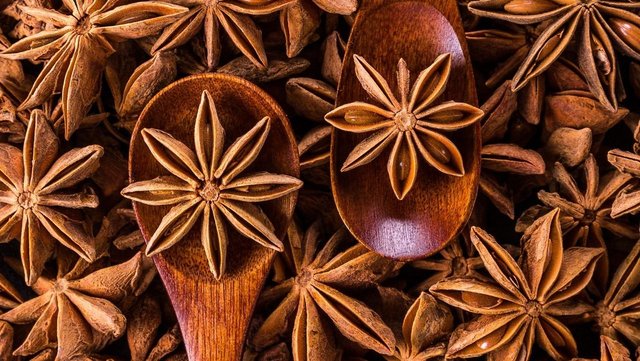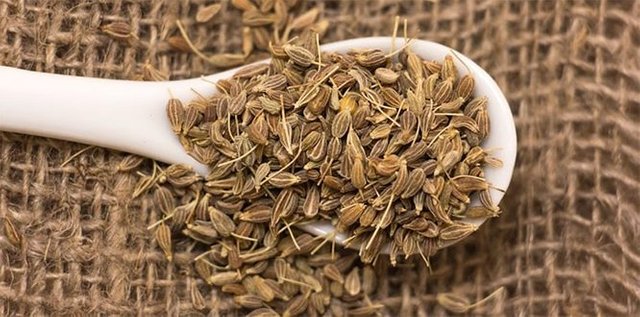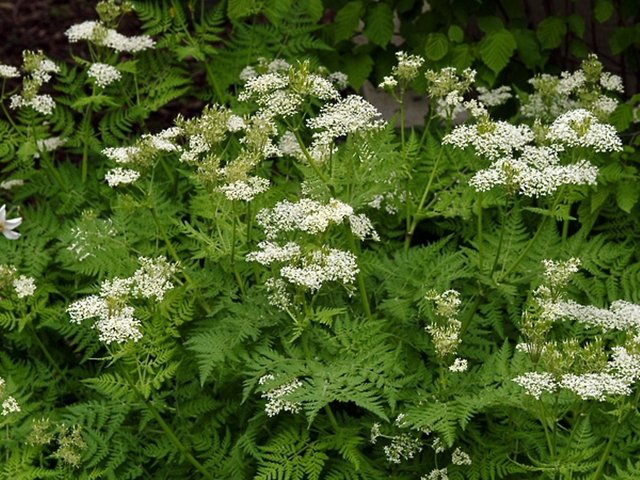
What are the benefits of anise?
It is a plant known as pimpinella , which belongs to apiaceae family and it is pimpinella anisum . This humble anise plant is native to the Middle East and the Mediterranean region; probably discovered in Egypt on the fertile plains of the Nile delta.
Anise is a perennial plant; In general, it grows to about 2 feet in height. When white flowers bloom in July, and the heads of flowers are mature enough, the whole plant is harvested once. Then the seeds are separated from the flowers.
The outer surface of the anise seed is rectangular, curved or comma-shaped, about 3-4 mm in length and light brown in color.
The different licorice-like flavor of the seeds makes it aromatic. This special fragrance of its own is due to its anetole-containing volatile oil. (one)
Health benefits of anise
Diuretic: People often believe that frequent urination is a bad thing. However, urination helps your body get rid of many toxins and waste products. According to a study, anisone acts as an urine-enhancing kidney function. (3)
Supports the digestive system : Anise is considered a highly curative plant for the digestive system. In addition to improving digestive properties, it is a truly excellent treatment for digestive problems. Anise is useful for digestive diseases, vomiting, nausea, diarrhea, abdominal pain, gas problems, spasmodic bloating as well as can be very effective in gastritis. It also works as an appetite stimulant.
Good for upper respiratory tract: Anise is also an ideal expectorant. It can be relaxing for anise, throat and lungs loosening sputum. It also plays an important role in the treatment of asthma. Anise, a component commonly used in cough medicines, is useful in treating various respiratory problems. In cases such as bronchitis, sinusitis, influenza and pneumonia, healing is accelerated with the help of aniseed seed.

Good health: One of the health benefits of anise seeds is to preserve oral health. Thanks to its anti-microbial and antibacterial properties, it becomes an ideal component for mouthwashing. In addition to fighting the smell of bad breath, it also reduces the swelling. Homemade mouthwash or tea prepared with anise seeds can be very effective for oral health. (4)
Good for cataract: Anise is beneficial for cataract treatment. In the morning, 6 grams of anise can be effective for the treatment of cataracts.
Good for insomnia: Teas prepared with anise can be effective for the treatment of insomnia. Anise tea after meals before sleeping can promote the body to sleep. (5)
Helps increase milk : Anise can be used as an aid to increase breast milk. Anise seeds help raise the levels of anethole prolactin, thus promoting milk production. Women who want to increase milk production are recommended to drink 1 cup of anise tea per day.
Useful for mothers : New mothers can benefit from the benefit of anise to help with colic and stomach. Anise as an expectorant prevents excessive accumulation of water in the system. It can reduce problems such as swelling (gas) for both adults and children. It is accepted as a natural treatment method for colic and digestive disorders.
Note: You should not give babies anise tea and seeds, other diseases may cause. (6)
Lowers cholesterol: Anise is a natural antilipemic. Thus it can be effective to lower LDL (bad cholesterol) and triglyceride levels. According to the research, it supports the bile and the small intestine with anise fiber content for the cholesterol problem that may occur due to obesity and metabolic problems. Therefore, it may be beneficial for low cholesterol levels.
It protects against cancer and heart diseases. Phenytoids in anise act as powerful antioxidants. On the other hand, compounds such as quercetin and kaempferol are chemo-inhibiting agents. Thus, it protects the cells from oxidative damage. It also reduces the risk of anise, cancer and heart disease, which can lower cholesterol.
Supports hair health: Anise is useful for treating scalp problems due to its antiseptic and antifungal properties. It can help to remove hair and repair damaged hair. Dandruff can also prevent the dandruff because it moisturizes the scalp. It is also a good remedy for lice, flakes and scabies.
Supports skin health : Anise contains a range of antioxidants that are useful for maintaining skin health. Anetole is one of the strongest antiseptics that anise has. Thus, it protects the language against infections and promotes skin health. (7)
It relieves menstrual symptoms: it gives mild estrogenic activity to two chemical plants called ananin and dianethole and photoanethole. Therefore, anise, which may be effective to control menopausal symptoms, may also help to alleviate cramps occurring at the onset and at birth. (8)
Benefits of anise oil

- Anise oil helps to digest heavy, fatty and sugary foods. Particularly, a drop of anise oil added into the hot water can be drunk after meals.
- Thanks to its detoxification properties, anise oil helps a healthy and sharing skin. Massage with head to fat also soothes the scalp and promotes hair growth.
- Anise oil may be helpful as a narcotic without the side effects associated with narcotics. Therefore, anise oil is effective to alleviate hysteria attacks. If you suffer from panic attacks and anxiety, you can try anise oil again. It can also be a remedy for sleep disorders since it is soothing.
- Anise oil is a natural analgesic. Therefore, rheumatism, arthritis and pain relief for people suffering from joint pain is supportive.
- Aniseed oil dissolves mucus or sputum, cleanses compressed lungs, and helps reduce respiratory problems.
- Aniseed oil is very effective in preventing infections in the body due to its antiseptic properties.
- Anise seed oil helps to reduce the cramps experienced during menstruation because of having analgesic and antispasmodic properties.
- Anise oil can be effective to increase body temperature, so it is helpful to combat cold.
- Anise oil keeps your blood pressure under control. This reduces the pressure on the heart. As the oil is detoxified, it improves blood circulation and promotes heart health.
- In order to reduce sleep disorders, anise oil can help with its natural sedative properties.
- Anise oil is suitable for the body's metabolism. Fat stimulates hormones in the body and keeps the metabolic rate of enzymes healthy. (10)
Health benefits of anise tea
- Anise tea serves as a expectorant with its existing phytochemicals and eliminates mucus in the airways. Thus, the lungs and sinus become effective in obstruction.
- Due to its antispasmodic properties, anise tea with laxative effect makes it easy to relieve various stomach disorders such as gastrointestinal cramps, constipation and belching.
- Thanks to its soothing properties, anise tea is a remedy for insomnia problems by acting on the nervous system.
- Anise tea that accelerates the flow of urine helps to remove toxins from the kidneys, thus helping to clean the body.
- The antimicrobial and antibacterial properties of anise tea prevent the growth of bacteria in the mouth.
- Due to the presence of anethol substance, anise tea with estrogen properties helps to regulate the menstrual cycle.
- Due to its antiseptic, anti-inflammatory and antimicrobial properties, anise tea can be effective in the treatment of some skin diseases such as scab and acne. Anise tea provides relief when applied topically to the skin. (12)

Harm of anise
Pregnancy and breastfeeding: Anise is considered safe for pregnant and breastfeeding women when used within the food program. However, large amounts of consumption should be avoided.
Children: Anise, which is usually taken with food, will probably be safe for children if consumed by mouth. In the short term, the anise should not be consumed in large amounts, which is probably safe, which is also applied to the hair and the skin.
Allergies: May cause allergic reactions in some people allergic to anise-like, anise-like plants. Anise-like plants are listed as asparagus, cumin, celery, coriander, cumin, dill and fennel.
Hormone sensitivity: Anise may act as an estrogen in hormone-sensitive conditions listed as breast cancer, uterine cancer, ovarian cancer, endometriosis, or uterine fibroid. If estrogen exposure makes you worse, you should avoid using anise. (13)
recommendations
There are no clear clinical studies on anise consumption, but if an average is required, 0.5 g to 3 g anise seed or 0.3 ml anise oil can be used for dyspepsia (stomach pain, sour, indigestion). (14)
For adults 18 years and older: For abdominal pain, 15-30 lightly ground or powdered anise seeds are infused with boiled water and 1 cup is drunk. An additional 4 to 20 drops of anise oil may be consumed. For digestion-assisting property, hot water with aniseed extract can be smoked before sleeping. For respiratory disorders, wetted anise seeds can be drunk with hot water.
For children under 18 years of age: In general, half cups and 3 small cups of anise tea can be drinked. For nose discharge, 2 teaspoons of forged anise seed is thrown into half liter of boiled water and left to brew. It can be drunk so that it does not exceed 1-3 teaspoons as sweetened or cold. (15)
Warning !
It is a proposal and Information article that has been compiled from different sources. There is no definitive diagnosis and treatment. Ask your doctor about any health problems. Remember, the treatment methods applied in health problems may vary according to the biology of individuals, hereditary characteristics, age, height, weight differences, allergic aspects and dozens of such conditions. Only your doctor can help you in the treatment of your health problems.
Posted from my blog with SteemPress : https://www.orak11.com/index.php/what-are-the-benefits-of-anise/